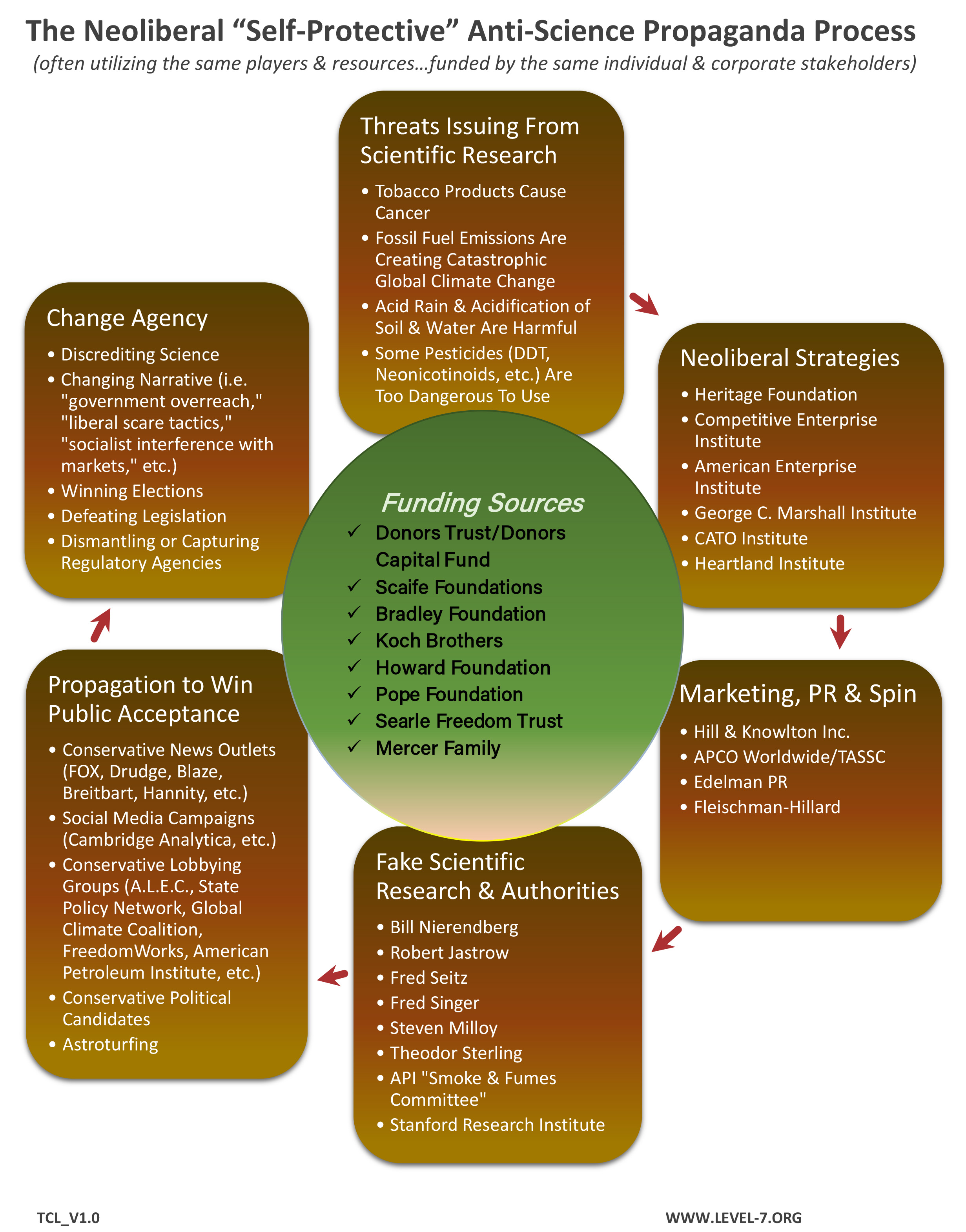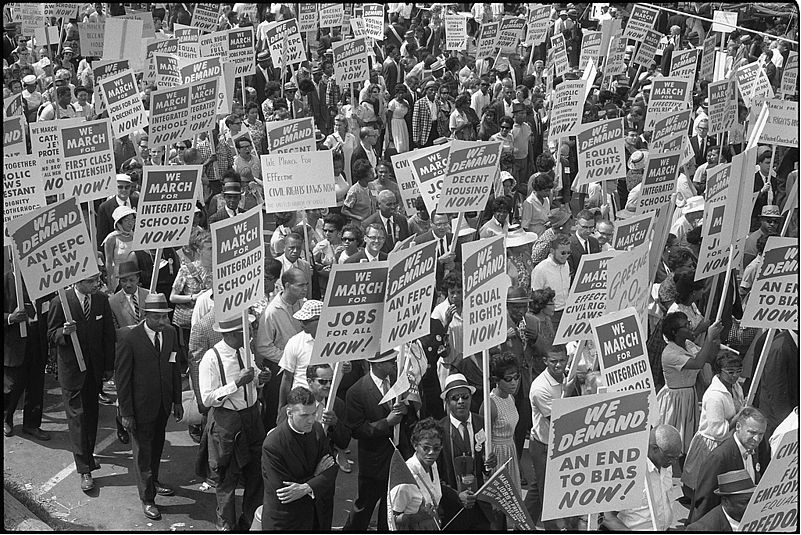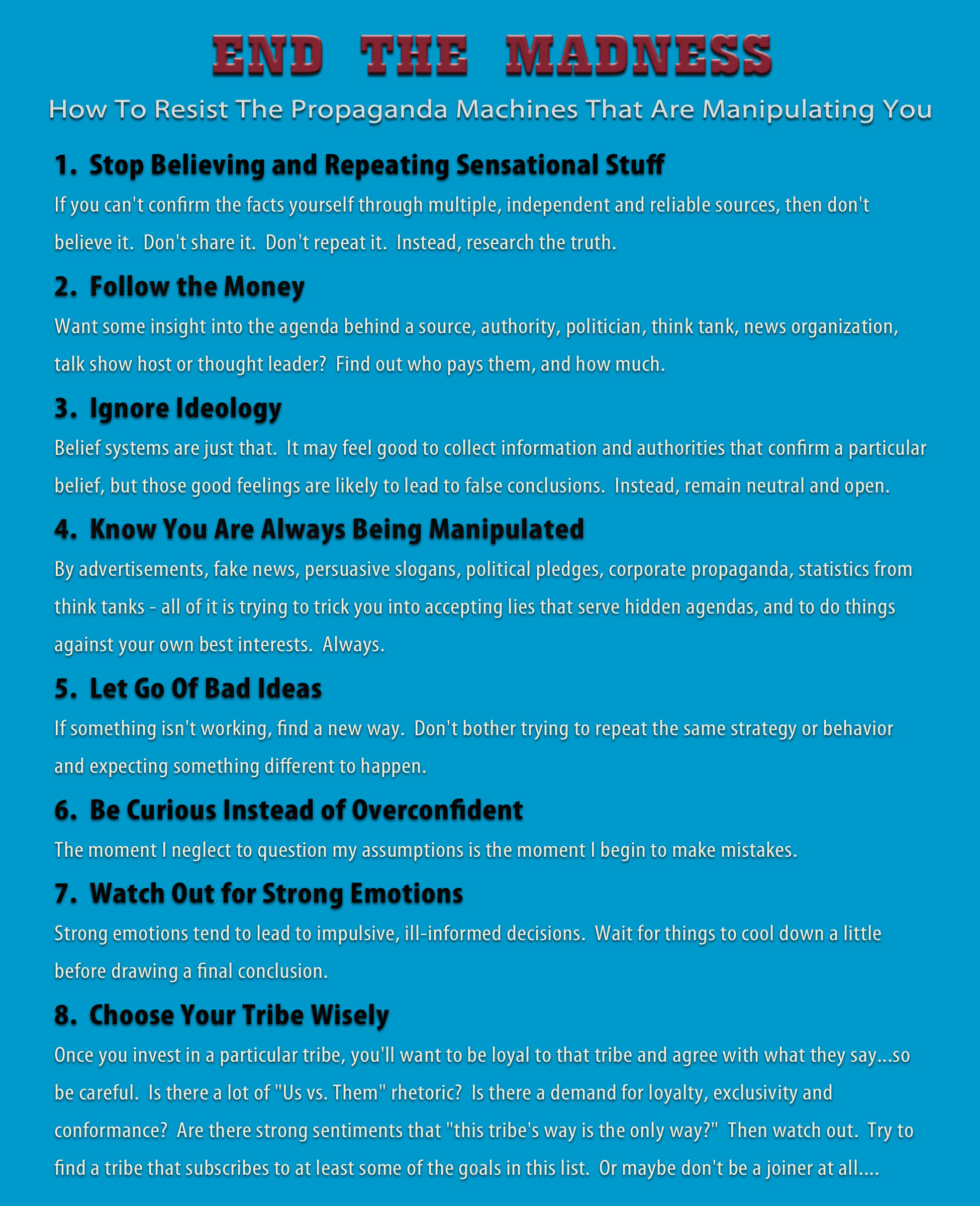
"Experience hath shewn, that even under the best forms, those entrusted with power have, in time, and by slow operations, perverted it into tyranny; and it is believed that the most effectual means of preventing this would be, to illuminate, as far as practicable, the minds of the people at large..." - Thomas Jefferson, A Bill for the More General Diffusion of Knowledge, December 1778
Like most folks who enjoy tracking the news, opinion pieces and stories circulating on social media, I've been
deluged with opinions lately. About why Trump got elected, why liberal ideals are flailing, why cultures around the globe seem to be regressing, why the working class is so angry, why there is an upsurge in nationalistic sentiment, why the global economy is sputtering, why Islamic extremism won't go away, etc. And I have to say, nearly all of the explanations I've seen or read seem to be...well...
almost complete bunk. Not entirely, but almost. Even the folks that I admire and respect - and whose writing I've followed for years - appear to be missing what is obvious, and choosing instead to follow the crowd down a rabbit hole of elaborate speculation. It's almost as if our cognitive dissonance between the way we expect the world to be, and the way the world actually is, has hit a hard, thick, impenetrable wall. And, perhaps as an understandable consequence, our collective realm of thought is self-destructing along with everything else. It really feels like all of humanity is undergoing a psychotic break.
But enough of this positive, uplifting preamble. Am I now going to sell myself as the one sane voice in the wilderness? The one person who can see through the fog of delusion, into realms of pure causal clarity? Well I haven't performed any miracles lately, or won a Nobel Prize, or even succeeded at ridding our back yard of its prodigious gopher population...so I can't assert any special knowledge or authority on the state of reality. But perhaps I can at least poke some holes in what I perceive to be a sort of mass hysteria around the current state of affairs, and inspire one or two minds to free themselves from what - to me at least - seems like a glaring oversight of several basic facts, and several fairly reasonable, even predictable conclusions about why we have arrived at this rather bizarre moment in global and domestic affairs. I've also got some proposed solutions up my sleeve.
Okay so let's start with the easy stuff....
HOW DID TRUMP THE IMPERIOUS IDIOT BECOME POTUS?
Trump won the election for four fairly straightforward reasons:
1) Tapping Into a Deeply Felt, Enduring Anger
A large number of fearful, uninformed and relatively gullible people were really angry - and in fact have been really angry for quite a while now - and Trump tapped into that anger and channeled it to his own benefit. How did he tap in? Mainly by amplifying the blame for all white working class sufferings on a Bogeyman painstakingly propped up by decades of propaganda (see #3 below). The groundwork was already laid for Trump in this regard, he simply capitalized on it. And sure, Trump also called upon the timeworn tactics of racism, sexism, Islamaphobia, xenophobia, "pro-life" religious conservatism, and mixed these with extraordinary lies and grandiose exaggerations, even stirring a pinch of Occupy Wall Street speak into the mix. Here again there was nothing new, just borrowed ideas and rhetoric from previous streams of propaganda and populism - his opportunistic tools. I have discussed elsewhere how Trump also deployed a
uniquely American flavor of salesmanship, and tapped into longstanding fears about the
decline of testosterone and an ascendance of the feminine, and perhaps these were even more representative of his unique character. I've also discussed some of the other factors involved in
this post. But the main driver behind the success * of Trump's nationalistic populism was
anger - an anger surely shared by many around the globe.
2) Hillary Clinton's Flaws as a Candidate
Hillary Clinton was simply not a winning
enough candidate. Despite her capturing the popular vote, a diverse and widely-distributed group of Democrats who showed up for Obama
didn't vote at all in 2016 (about 7 million of them I believe), because they simply weren't inspired by Hillary. Another large portion of Democrats in the Rust Belt voted for Trump instead...because they really didn't trust or like Hillary Clinton. And of course when Hillary ran for President previously, she lost the Democratic primary to someone who was simply a more attractive candidate to many people. I'm not saying Hillary wasn't
qualified, mind you, just that she wasn't
compelling enough to mobilize voters. Imagine, for example, how exciting things could have been if a Sanders/Warren ticket - or a Warren/Booker ticket - had emerged from the primaries. Gosh golly I think some otherwise apathetic peeps might have gotten themselves to the polls.
3) Decades of Relentless Propaganda and Manipulation
A concerted propaganda effort over many years - and costing billions of dollars - was executed by wealthy conservatives (the Koch brothers, Roger Ailes, etc.) to misinform U.S. citizens about
anything and everything, mainly to get them thoroughly and irrationally fired up against President Obama, Hillary Clinton, Democrats, the Affordable Care Act, marriage equality, liberal immigration policy, Black Lives Matter, protecting minority voting rights, or anything else smacking of progressive ideology, "big government," liberal elitism or the dreaded
socialism. The Heritage Foundation, Cato Institute, FOX News, Glenn Beck and The Blaze, Rush Limbaugh, RedState, Infowars, Breitbart, and carefully organized Tea Party grass roots activism all propagated very similar (sometimes identical) narratives about the failures and "evils" perpetrated on America by these nefarious, malevolent ne'er-do-wells. Most of this propaganda had little internal logic, and relied on few real facts, generating instead a slew of "alternative facts" that conformed with an alternative Bogeyman/conspiracy reality.
This propaganda has also made a concerted effort to vilify "the liberal media," evidence-based analysis of policies and practices, anything that sounded too "intellectual" or wordy, and even the usefulness or viability of scientific research. This was a transparent tactic to undermine contradictory perspectives that threatened the propaganda narrative - that is,
a transparent tactic to undermine the truth itself. As a consequence, a new breed of Republican politician began to surface that could provide a charismatic, often hokey or folksy front for this "anti-establishment" propaganda machine, often without an ounce of real substance to back up their facade. This is part of why the ignorant and silly sound bytes of Michelle Bachman, Todd Akins, Sarah Palin, George W. Bush and others seemed to skyrocket them to popularity, and how folks who are clearly unqualified, incompetent or just plain stupid have attained positions of immense power in Republican administrations. It's all part of a clear and deliberate effort to prop up an
alternate reality narrative.
We must also keep in mind that any Republicans who disagreed with this narrative or its political offspring were also rapidly ejected from the herd. Skilled, intelligent, well-meaning Republicans were quickly forced to either dumb themselves down and conform to the silliness, or switch parties, or retire. This was all about capturing and retaining political power, a hoodwinking of America to facilitate plutocracy and corporatocracy. And of course we are already seeing the new Trump administration continuing these same distortions and tactics to support their particular reality field.
4) Underhanded and illegal help.
We may not know for some time all the details about Russia's intrusions into the 2016 U.S. elections. We also probably can't know exactly how much they really influenced voter turnout and choices. We do know, however, that these actions were
deliberate, well-planned and pervasive. We also know the aim was to influence the specific outcome of denigrating Hillary Clinton, and several other Democrats, so that Trump and other Republicans could win these contests. We also know Russia has been involved - and continues to be involved - in such activities
in other countries. And did FBI Director Comey's actions in the weeks prior to the November vote have a significant impact? We may not know that for certain either. In addition, however, we also know that Republicans both
gerrymandered many states to provide a majority in both local legislatures and the House of Representatives, and aggressively
purged voting rolls of African American Democrats to similarly skew results in their favor locally and nationally. And because the margin of the election wins in some areas (Arizona, Maine, Michigan, Minnesota, Pennsylvania and Wisconsin, for example) are relatively small, all of these underhanded and illegal efforts combined could easily have made a substantive difference in the final electoral vote distribution.
IS ALL THAT ANGER TRUMP TAPPED INTO JUSTIFIABLE?
Of course it is. It's just been artfully stoked, molded and misdirected
away from the real causes of very real problems. At whom - or what - should these folks be directing their ire? Well, let's take a look at what's really going on....
What has caused so much market instability, loss of jobs and a living wage, huge increases in consumer debt, a steadily climbing cost of living, widening wealth inequality, and precipitously declining consumer buying power? Folks, it's not any of the factors being bantered about in the media or expounded upon by most pundits and sages, and it's certainly not anything new (as just one example, real wages have been in decline in the U.S. since about 1968). The underlying problem is kind of like the air we breathe - if we were fish, it would be the ocean we are swimming through; we just can't see it because we are so profoundly reliant upon it. But it's
croniest, clientist, commercialist corporate capitalism folks. Really...that's the complete, well-rounded, precise and truthful cause of all these problems. The only things that keep us from seeing this clearly are the fish-in-the-sea/elephant-in-the-room/emperor's clothes phenomenon...artfully reinforced by the carefully crafted propaganda alluded to earlier. But if we are willing to open our eyes to the obvious, this explanation is inescapable.
Let's look take a quick peek at some supportive details.
Capitalism is growth-dependent.
Our current form of capitalism relies on cheap labor, cheap resources and expanding markets to keep growing. Why? Because as standards of living increase, a tipping point is inevitably reached where domestic workers expect to be paid more than companies can afford to pay them and still remain profitable. Why? Because companies are selling products and services to the same workers who are producing them, while at the same time having to pay for other inputs (raw materials, equipment, buildings, taxes, service inputs, etc.), and of course wanting to extract profit from the equation as well. To make matters worse, public owner-shareholders who add zero value to the business itself always want to extract more and more profit for themselves. But you can't have your cake and eat it to. Finally, eventual natural consequences like market saturation, price inelastic demand, and "lower prices are better" consumer expectations add additional restrictions on profit. All of this results in a situation where, once a certain peak standard of living and affluence are reached across a large enough segment of society, there is simply no more room for profit. In this sense, the "middle class" of America is the natural enemy of capitalism, forcing free enterprise to perpetually seek cheaper inputs outside of the United States. This is one reason why the U.S., at only 5% of the Earth's population, has been using close to 30% of global resources to support its standard of living.
So without this growth, profits rapidly diminish and even evaporate. This is a primary reason why globalization has been so critical to the function of capitalism - the desire for inexpensive labor and resources, as well as new populations of consumers, has become increasingly strident. In fact, this growth-dependency can become so urgent and toxic that it causes military conflicts and trade wars in order to secure more low-cost inputs and new market opportunities. And over time, when cheap labor, cheap resources and new markets inevitably become scarce - when there is nowhere else to go - the focus of free enterprise necessarily shifts to increasing various efficiencies. And the first stops on the efficiency train are usually three considerations:
labor efficiency, economies of scale, and reducing competition.
1) Labor efficiency. Labor is one of the most expensive inputs to capitalism, and there are a number of strategies to reduce costs once overseas outsourcing reaps diminishing returns. One is automation and computers that permit fewer workers - or cheaper workers with less skill - to create the same output. Another is reducing wages, often by replacing seasoned workers with a younger, lower cost workforce; or by shifting full-time employees to part-time or contract status to avoid paying benefits and taxes; or by breaking and ousting labor unions. Another is increasing the productivity of employees, through expecting longer work hours for the same pay, or restructuring salary to performance-based incentives, or using an intimidating management style of quotas and reprimands.
2) Economies of scale. Becoming bigger - even to the point of completely monopolizing a given industry on a transnational scale - introduces many potential efficiencies and greater control of all the inputs involved. It also provides greater influence over relationships with suppliers, local governments and distribution channels. The ultimate result is not only a lower cost-per-unit, but more security and leverage over everything from workforce to government regulation. This level of control is very appealing to owner-shareholders who expect consistent profitability.
3) Reducing competition. Here the strategies are also fairly predictable. Either companies will try to position themselves as the only game in town through mergers and hostile buyouts, or they will engage in other
anti-competitive business practices that provide a lock on how their products perform in that market. Common anti-competitive practices include things like price fixing, exclusive dealing, dumping products at a loss until competitors have fled the market, and intellectual property protections that guaranty exclusivity or disrupt competition (patenting crops, etc.). There are some very creative and wide-ranging options, though, and I recommend consulting the link above for more examples.
What are the consequences of these practices? Almost always these result in larger and larger monopolies, fewer jobs and lower pay, regulatory and political leverage in governments (sometimes to the point of complete capture of government), and price inelastic demand for an ever-widening array of commodities. At the same time, however, once these approaches are widely and aggressively deployed, the impetus to grow business and profits is still just as urgent...but now the easiest tools have already been used up. The available options have been shrinking. Subsequently, when stagnant or diminishing profits begin to worry investors and frustrate entrepreneurs, the focus has to shift into new territory. This might include:
1) Veblen goods. On the one hand, these luxury items can appeal to a shrinking slice of society with disposable income, who are willing to pay top dollar (read maximum profit) for goods and services with cultural cachet. Innovations in this arena can pay off much more handsomely than a new design for inexpensive mass-produced gadgets.
2) Planned obsolescence, "newer is better" marketing, and meaningless innovation. Ever wonder why everything from dishwashers and vacuum cleaners to housing and cars don't seem to endure as long or perform as well as they once did? Or why there seem to be frenetic updates and upgrades to everything we buy, which a product or service won't work without? Because it doesn't pay to make things that last, or that don't require maintenance, or that can't be upgraded. It's much more lucrative to engineer a rapid turnover of goods, or goods that require constant servicing and enhancement. If consumers can be persuaded to believe that every tiny feature, no matter how trivial or irritating, is a "must have," well then it becomes very foolish to produce anything simple, enduring or fully functional from the get-go...doesn't it?
3) Recurring consumer reliance or addictions. This is a subtler, longer-term strategy that can be very effective. Moving away from single sales to a subscription model, for example. Or medicating the symptoms of chronic conditions with expensive pharmaceuticals, instead of treating the underlying causes. Or pricy "club" memberships that lock consumers into a single source for their purchases, so that they are compelled to recoup their membership fees via that one retailer's "deeply discounted" products. Ironies abound of course. Consider, for example, e-cigarettes marketed to help nicotine addicts wean themselves off of traditional cigarettes, simply trading one addiction for another for
equally negative health effects.
However, once again these strategies are only sustainable if there is a large pool of consumers still available with adequate disposable income. But, recalling that labor reduction and impoverishment is one of the prominent efficiency strategies, and that worker-consumer exploitation and dependency have already been in play for some time, existing markets inevitably will contract or become saturated. Add to this the hallmarks of "lowest price!" consumer expectations, owner-shareholder profit expectations, spreading price inelastic demand, and the other pressures we've enumerated so far, and the final straw pretty much breaks the camel's back.
What's left? Where can capitalism go from here...?
Once the easiest efficiencies, marketing strategies and product choices have been exhausted, there is only one thing left to do: abandon production of traditional goods and services altogether. The next step in capitalism's decline is
financialization - that is, transitioning to a financial economy. Here profit is sought mainly through speculative investing, elaborate financial instruments, litigious enterprises (patent trolling), increased loan leveraging, and the cultivation of ever-increasing consumer debt. In other words, making money directly from money or through manipulating the law, without the intermediate step of providing an actual service or producing an actual good. And, in keeping with the previously established aims of efficiency, monopoly, dependence and so forth,
owner-shareholders become more and more wealthy, while jobs for worker-consumers become fewer and lower-paying, buying power continues to decline, benefits and privileges that were once ubiquitous become more scarce, and debt-slavery replaces wage-slavery as the new norm for the working class. For most people, life gets harder, more stressful and a lot less fair; the American dream of a middle-class lifestyle becomes harder and harder to achieve or sustain. And all of this is happening against a backdrop of promises that each generation would be better off than the last.
Is it any wonder that people are really pissed off?!

But we're not done yet. Eventually, towards the end of this final phase, capitalism flails around for additional labor sources, natural resources, efficiencies, speculations, lending avenues and so forth...but these are increasingly hard to come by. The strategies just aren't working as well anymore, even as owner-shareholders are expecting greater profits, workers are clamoring for more jobs and better pay, consumers are insisting on lower prices, markets are becoming more saturated and less competitive, and more commodities become subject to price inelastic demand. The pressures on the capitalist system only increase. Which is how bubbles are formed, and why crashes occur. Which of course only pisses everyone off that much more.
However, there is one remaining avenue of new inputs, and that is to
privatize public goods and anything socially owned. To facilitate this, corporations must aggressively roll back or capture as many regulatory and trade restrictions as possible. And, over the last decades, we've seen all of this playing out not only in the U.S., but globally. In the U.S., we've had the FCC selling off the public broadcast frequency spectrum to corporate bidders; school voucher programs that direct public funds away from public schools; the freezing of EPA enforcement via executive order; the SEC loosening leveraging restrictions; staunch opposition to the ACA and single payer healthcare; vociferous advocacy of privatizing Social Security....It's all clear as day. As for the rest of the world, check out the consequences of the World Bank and IMF's "structural adjustment policies," or who benefited most from our biggest trade deals. At the same time, the capitalist system self-protectively socializes as many risks as possible for its increasingly unreliable experiments, so that it can - like a self-destructive gambling addict - expend a final set of borrowed inputs for a last spasm of profit. Bailouts anyone? Too big to fail? And of course all of the stages I've described generate instability in boom-and-bust cycles along the way, which is exactly what we've been experiencing on a global scale.
Now, rather unfortunately, we are finally and irreversibly arriving at the very end of a death spiral, where capitalism has busily begun consuming itself. There is nowhere else to go. In the next boom-and-bust cycle (or maybe, optimistically, the one after that), there will be nothing left to feed into the world's economic engine. In our current trajectory, stock valuations are a consequence of magical thinking and psychological reactions, with no correlation to anything real. And, like most conditions that are not based in reality, it is totally unsustainable. Yes, it is possible that some new storm of innovations will create a new, temporary ecosystem for profit, and perhaps extend the death rattle for a few more precious months or years. But the end of capitalism is, I think, truly and irrevocably upon us.
So perhaps now it has become clear why people have become so desperate, agitated, angry, and afraid. Not just in the U.S., but all around the globe. Intuitively and experientially, they know the writing is on the wall. Human beings - even the folks who voted for Trump - are not entirely stupid. They sense the game is up, even if they can't admit the underlying causes to themselves. They are witnessing a capitalist system that is no longer generating returns adequate to support civil society - let alone the opulence, excesses and tremendous wastes of U.S. consumerism - and that system is going to take them down with it. And, as the global economy teeters on the edge of the abyss, a rallying cry of the pro-capitalist propagandists gurgles forth: "Just give us one more try! Do if for your country! It's not your fault and it's not our fault...
it's the Bogeyman's fault! Just trust us and
we will make you great again!" Oh yes, the worker-consumers of the world have every reason to be lividly pissed off - now and for many decades past. But unless we all work together to turn the Titanic, and soon, our suffering will only intensify and the options decrease, until all that is left of capitalism is a set of rotting teeth, gnashing away at nothing in the dark.
WHAT ARE OUR OPTIONS NOW?
As folks have been waking up to the reality that our current capitalist system isn't working, a number of dead-end proposals have been put forth for our consideration. These have included:
1) A return to FDR New Deal style solutions engineered by government. This would undoubtedly soften the blow for those feeling the most economic pain, and perhaps create some temporary, well-paying jobs. Increasing taxes on the wealthy to pay for this expansion would also work - in the short run. This was what Bernie Sanders was championing. And this probably would have ushered in a temporary golden age of flourishing quality-of-life for mainstream America, possibly even expanding the middle class once again. But it still wouldn't have solved the underlying self-destructive currents in capitalism that we've explored in this essay, and so, in the long run, it would not have averted inevitable decline and collapse being witnessed. In fact, it might have even accelerated destabilization - by encouraging capital flight, for example, or by amplifying boom/bust cycles and comorbid inflationary pressures, debt burdens, and so forth. So, not a reliable long-term solution.
2) Freeing up the engines of capitalism with laissez faire reforms, reducing government deficit spending, and expanding tax cuts for the wealthy, then attempting to focus beneficial outcomes on the U.S. economy with trade protectionism. This seems to be the solution Donald Trump and Paul Ryan are offering. Unfortunately, not only does this approach fail to address the flaws in the capitalist system itself, it also exacerbates some of the more pronounced factors that undermine overall economic productivity, stability and mobility. In fact, all of these strategies have already been tried in the recent past, and they have just made things worse, and very quickly. Just follow these links or do quick web searches on
"trade protectionism," "regressive taxation" and
"austerity economics" for relevant disastrous examples and analysis. Oops!
3) Try to maintain a status quo crony capitalist arrangement, with a government just strong enough to facilitate corporate interests, a monetary policy that effectively controls inflation, and taxes just high enough to keep social safety nets from becoming exhausted. This is what Obama did fairly successfully, and I think it is also what Hillary Clinton would likely have done in some variation. It is a strategy that promotes stability, and stretches out the timeline of decline and collapse, likely to its greatest possible limit. If we added Picketty-inspired wealth taxes to this scenario, it might actually stretch things out for decades. But...oh well. The underlying issues we've raised here are still not addressed in any substantive way. We would still be looking at the collapse of capitalism over the longer term.
Okay...if these options would work, what's left to try? Is there a viable escape hatch?
Well that's what I've been thinking about for the past few years. And my unsurprising conclusion is pretty straightforward: we need to replace capitalism with a more egalitarian political economy. Not State socialism -
absolutely not. But there are other options, the components of which have actually
already been tested and proven in the real world. I provide detailed proposals and supportive information for those on my
Level 7 website. But in short, consider thinking of a new political economy as you would a new kind of air to breathe...or a new kind of ocean to swim in...realizing that it will take some time and effort to fully grok all of its dimensions. Then take a steady, considered breath, and dive in.
A LEVEL 7 SOLUTION
I've summarized the basic idea of a Level 7 political economy in the acronym
EPIC-SEEDS, which stands for:
E ngaged - Civic engagement and political obligation become fundamental expectations of all citizens, and are tied directly to proportional access to public goods, infrastructure, services and privileges.
P iloted & Precautionary - Starting small, proving the concept, replicating, and measuring the outcomes, impacts and externalities in a multidimensional way.
I ntegrity - Embodying the values, principles and approaches of the desired political economy in all revolutionary activism and successive phases of execution.
C ommons-Centric - Neither privatization nor State ownership, but migrating resource ownership and governance to a user-based, self-organized and self-managed model.
S ubsidiarity - Shifting the center of all decision-making, service provisioning and economic production down to the most local level possible, ideally the community.
E galitarian Efficiency - The aim of both equality of opportunity and equality of outcome for all citizens, in all circumstances.
E volved - Supporting individual and collective moral evolution beyond I/Me/Mine or Us vs. Them, to a more cohesive and compassionate We.
D irect Democracy - At all levels of government, and all levels of free enterprise, in concert with elected or appointed technocrats and managers, while holding representatives and civil servants accountable, and overriding them when necessary.
S ustainable Design - Systems designed to ebb-and-flow in cyclical steady states, without depleting natural resources, destroying cultures or ecosystems, or creating new forms of slavery.
For the full overview of what I think needs to be done - with lots of supportive information and resources on how it all works - please check out
http://www.level-7.org. Although the website is becoming fairly comprehensive, the objective was to create a
starting point for a more participatory long-term solution. So I hope you will check it out and offer some feedback. We have a long way to go, but the roadmap is clear.
*Footnote regarding the prevalence of anger: It should be noted that the angry voter percentage in the 2016 U.S. elections really wasn't that large in electoral terms. For example, Ronald Reagan won the Electoral College 489 to 49 over Jimmy Carter, whereas Trump only won 306 to 232 over Hillary Clinton. Trump's margin ranks him 46th out of 58 Presidential elections...hardly a decisive win, even when we ignore his record-breaking margin of loss to Clinton in the popular vote.











